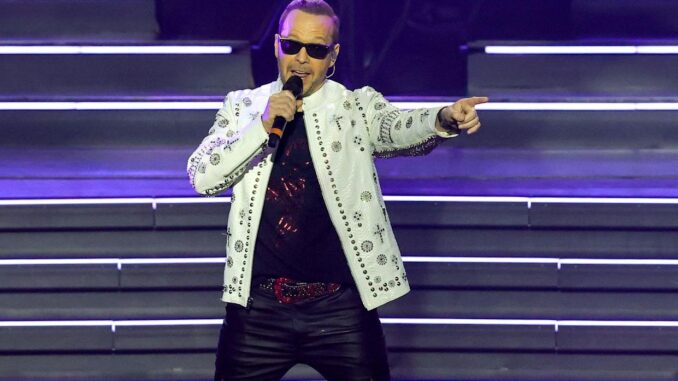
When CBS confirmed that Donnie Wahlberg would headline Boston Blue, a Blue Bloods spinoff, longtime fans immediately wanted to know one thing — why now? After fourteen seasons of playing Detective Danny Reagan on Blue Bloods, Wahlberg could easily have closed the book on the Reagan family’s legacy and moved on. Instead, he chose to double down on the world that made him a household name. In a recent interview, the actor finally revealed his “sweet reason” for returning — and it says a lot about both his values and the emotional core that has made the Blue Bloods franchise endure.
For Wahlberg, the decision wasn’t driven by fame, ratings, or even nostalgia. It was, as he described, “about family — both real and fictional.” The Blue Bloods universe has always revolved around themes of family loyalty, moral duty, and generational ties, and those ideas seem to have struck a personal chord with Wahlberg himself. As he explained, the show’s original run became an anchor during turbulent times in his life. The cast and crew evolved into a second family — one that kept him grounded through the chaos of Hollywood and the constant touring demands of New Kids on the Block.
“I didn’t want to say goodbye,” Wahlberg admitted. “The Reagan family dinners meant something to people — and to me. There’s a warmth there that’s rare on television.”
That warmth is exactly what Boston Blue aims to preserve while also pushing Danny into new territory. Instead of the tightly knit New York City setting of Blue Bloods, the spinoff moves to Boston, Wahlberg’s real-life hometown. It’s a clever meta twist: an actor famous for embodying loyalty and legacy returns to his roots to explore what those values mean on a personal level. In the process, the show blurs the line between Donnie the man and Danny the detective — each searching for purpose after years of service.
The “sweet reason” behind Wahlberg’s decision also has to do with his late father, Donald Wahlberg Sr., a Boston city worker and Korean War veteran. Wahlberg has often credited his father with inspiring his sense of discipline and dedication. Taking on a show set in Boston, centered around law enforcement, feels like a quiet tribute. “It’s my way of honoring him,” he said. “He was a working-class hero. So is Danny.”
Beyond sentiment, Wahlberg’s choice reflects his commitment to fans. Few actors maintain the kind of open, authentic connection with viewers that he does. His social media presence is filled with gratitude posts, behind-the-scenes clips, and personal reflections. “Blue Bloods fans are family,” he often says. Boston Blue is, in many ways, his thank-you gift to them — a promise that the values they cherished for over a decade won’t be left behind.
Critics have noted that Boston Blue also represents a rare creative gamble for CBS. Spinoffs of long-running dramas tend to struggle because they rely too heavily on nostalgia or fail to justify their existence. Wahlberg, however, brings both credibility and emotional weight. He isn’t simply revisiting a character; he’s expanding him. Danny Reagan, once defined by grief and moral rigidity, will now navigate new partnerships, generational change, and questions of identity in a different city.
And Wahlberg seems ready. “This isn’t about reliving the past,” he emphasized. “It’s about what comes after — for Danny and for me.”
Ultimately, the “sweet reason” is both simple and profound. Wahlberg didn’t return for money or ratings. He returned because Blue Bloods mattered — to him, to his father’s memory, and to millions of viewers who saw themselves in the Reagan family’s weekly dinners and hard-earned values. In a television landscape often dominated by cynicism and spectacle, that kind of sincerity might be Boston Blue’s greatest strength.